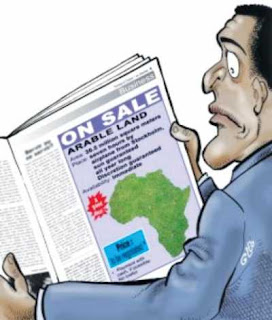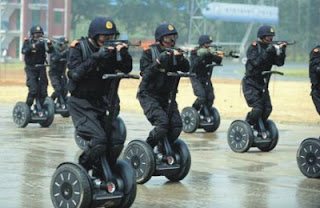Recently President Barrack Obama declared that the US will start a process of pulling out troops from Afghan soil. This declaration has come out with no surprise as this was being assumed from the past gestures. But what is significant is timing. It has to be observed along with many other incidents took place around that time. I shall discuss those coincidences later. The declaration has some logical backdrops. It was given in the backdrop of the end of Laden era which was followed by the clandestine negotiation continued between Taliban and Obama administrations. Experts on US policy are adding up more delicate backdrops related to this declaration. They are claiming that the Obama government is no more able to wage war against terrorism in Afghanistan with its continued overburdened economy. During war against Libya, in a speech, Obama told that necessarily it did not mean that the US would go to wage war everywhere on earth. He indicated that the war against terrorism is a common interest and other powers have to come for the greater interest of the world. But who will concur to through their troops in a ‘ordeal’?
The timeline for the drawdown are- 10,000 troops by end-2011, 33,000 by mid-2012 and the bulk of the remaining 70,000 troops at a “steady pace” through 2013-14. The stunning geopolitical reality is that US is barely avoiding defeat and is making its way out of the HinduKush in an organised retreat as claimed by an ex-Indian diplomat M. K. Bhadrakumar. The Taliban responded to Mr. Obama’s announcement saying – “The solution for the Afghan crisis lies in the full withdrawal of all foreign troops immediately”. Again, Obama appears to be optimistic about the Kabul government’s ability to assume the responsibility of security by 2014. This ‘optimism’ is far from reality as per as the present Afghan situation is concerned. The retreat of the US from Afghanistan as anticipated by Bhadrakumar was not baseless. But the realities behind the ‘retreat’ are two pronged- one reality is that the US is really finding it tough with rare possibility to win the war in Afghanistan. She is under pressure at home to withdraw troops and bring them back to home. Second thing the US strategists are finding it more useful to concentrate elsewhere than Afghanistan. May be they are finding it more important to make strong foothold in South Asia or South East Asia to dissolve China’s prowess in that region and utilising present turmoil centring the South China Sea.
Now let me talk about those coincidences that I have not mentioned in the first. There have been some important developments for months in South Asia and Far East Asia which might force or worry the US strategist to reshape their strategic landscape in Asia. On 29 March 2011, the Army of Nepal made out a fresh proposal for integration/rehabilitation of PLA (People’s Liberation Army, China) combatants that appears to have had a positive response not only from the Maoist leadership but also from the Nepali Congress. In a response to Chinese offer US has recently proposed for establishing a military base camp in Nepal with substantial military and economic assistance to the landlocked impoverished Himalayan country with the objective to free Tibet from China. In this year China’s proposal to Nepal came first and was followed by US’s one. Peoples Review, a daily of Kathmandu, revealed on 9 June that the US government has submitted a draft of military pact with Nepal along with demand for allowing the military base.
Another development has been taking place, for a few days, in the South China Sea encircling the Spratly Islands and its resources among the self declared owners. China’s expansive sovereignty claims on of the South China Sea, including the Spratly and Paracel islets, putting Beijing directly in conflict with the sovereignty claims and security of five Southeast Asian states and ASEAN members -- Vietnam, the Philippines, Malaysia, Brunei and Indonesia and outside them -- Taiwan.
In the South China Sea, US has only one permanent military base which is located Luzon Island, the Philippines. To hold back China’s military prowess US needs more strongholds in the off shore of the South China Sea. The present face to face situation among the neighbouring countries is the high time for the US to interfere. Hillary Clinton has already offered the Philippines to give arms to withstand China. US’s action irritated China and China rebuked US’s role as an act of interference. For China, the South China Sea is the security zone and important for maintaining economic pace and political supremacy in this region. To challenge US’s role in the Pacific Ocean, China needs to modernise its naval abilities. And China’s present economic power is inspiring it to continue this modernisation process. On the other hand, to stave off China US needs to concentrate more on this area. Probably this intention is going to bring change in US’s strategic landscape in Asia. Pulling out troops from Afghanistan may help to build up other countries in Asia. It may be a country or countries from South East Asia or may be even Nepal. Only future can be the best answer to know the upcoming changes. So let us look forward!
The timeline for the drawdown are- 10,000 troops by end-2011, 33,000 by mid-2012 and the bulk of the remaining 70,000 troops at a “steady pace” through 2013-14. The stunning geopolitical reality is that US is barely avoiding defeat and is making its way out of the HinduKush in an organised retreat as claimed by an ex-Indian diplomat M. K. Bhadrakumar. The Taliban responded to Mr. Obama’s announcement saying – “The solution for the Afghan crisis lies in the full withdrawal of all foreign troops immediately”. Again, Obama appears to be optimistic about the Kabul government’s ability to assume the responsibility of security by 2014. This ‘optimism’ is far from reality as per as the present Afghan situation is concerned. The retreat of the US from Afghanistan as anticipated by Bhadrakumar was not baseless. But the realities behind the ‘retreat’ are two pronged- one reality is that the US is really finding it tough with rare possibility to win the war in Afghanistan. She is under pressure at home to withdraw troops and bring them back to home. Second thing the US strategists are finding it more useful to concentrate elsewhere than Afghanistan. May be they are finding it more important to make strong foothold in South Asia or South East Asia to dissolve China’s prowess in that region and utilising present turmoil centring the South China Sea.
Now let me talk about those coincidences that I have not mentioned in the first. There have been some important developments for months in South Asia and Far East Asia which might force or worry the US strategist to reshape their strategic landscape in Asia. On 29 March 2011, the Army of Nepal made out a fresh proposal for integration/rehabilitation of PLA (People’s Liberation Army, China) combatants that appears to have had a positive response not only from the Maoist leadership but also from the Nepali Congress. In a response to Chinese offer US has recently proposed for establishing a military base camp in Nepal with substantial military and economic assistance to the landlocked impoverished Himalayan country with the objective to free Tibet from China. In this year China’s proposal to Nepal came first and was followed by US’s one. Peoples Review, a daily of Kathmandu, revealed on 9 June that the US government has submitted a draft of military pact with Nepal along with demand for allowing the military base.
Another development has been taking place, for a few days, in the South China Sea encircling the Spratly Islands and its resources among the self declared owners. China’s expansive sovereignty claims on of the South China Sea, including the Spratly and Paracel islets, putting Beijing directly in conflict with the sovereignty claims and security of five Southeast Asian states and ASEAN members -- Vietnam, the Philippines, Malaysia, Brunei and Indonesia and outside them -- Taiwan.
In the South China Sea, US has only one permanent military base which is located Luzon Island, the Philippines. To hold back China’s military prowess US needs more strongholds in the off shore of the South China Sea. The present face to face situation among the neighbouring countries is the high time for the US to interfere. Hillary Clinton has already offered the Philippines to give arms to withstand China. US’s action irritated China and China rebuked US’s role as an act of interference. For China, the South China Sea is the security zone and important for maintaining economic pace and political supremacy in this region. To challenge US’s role in the Pacific Ocean, China needs to modernise its naval abilities. And China’s present economic power is inspiring it to continue this modernisation process. On the other hand, to stave off China US needs to concentrate more on this area. Probably this intention is going to bring change in US’s strategic landscape in Asia. Pulling out troops from Afghanistan may help to build up other countries in Asia. It may be a country or countries from South East Asia or may be even Nepal. Only future can be the best answer to know the upcoming changes. So let us look forward!
This article was appeared first in the Daily Sun on 13th August 2011.













